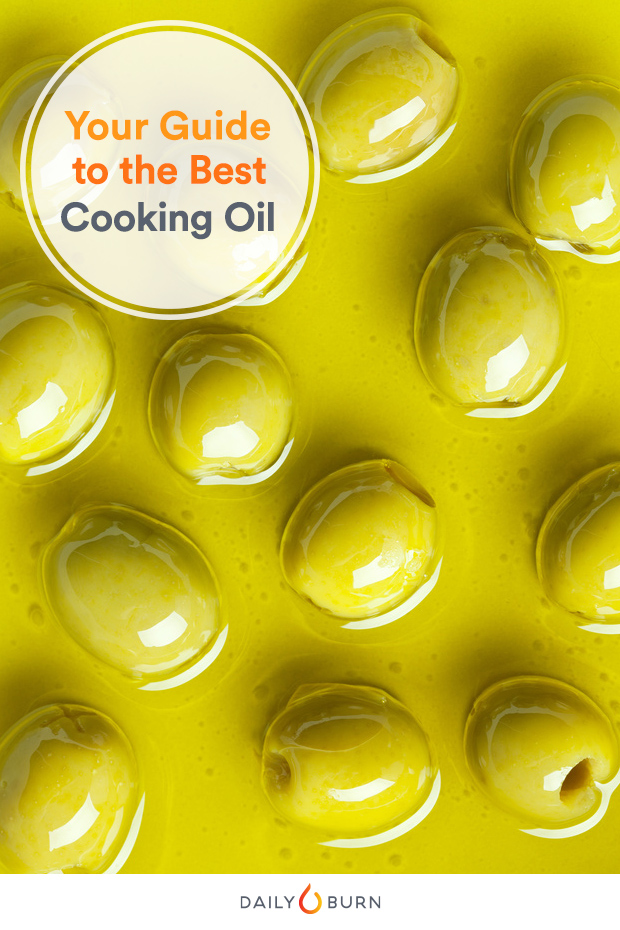
Every newbie chef (and even plenty of seasoned vets) have at some point found themselves staring down a totally intimidating aisle of cooking oil. From coconut oil to flaxseed oil to walnut (yes, walnut!) oil, it’s no wonder finding the best and healthiest cooking oil is overwhelming. That’s why we called in expert Gena Hamshaw, a clinical nutritionist and author of The Full Helping and Food52 Vegan. Here are her recommendations on the perfect healthy cooking oil for every purpose (listed from low- to high-temp cooking).
RELATED: 50 Resources That Make Meal Prep a Snap
Which Cooking Oil to Use (And When!)
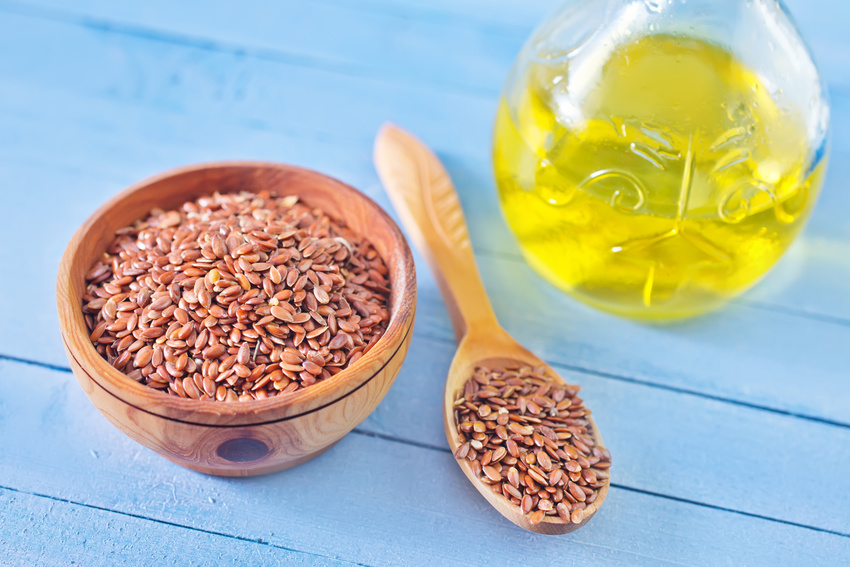
Flaxseed Oil
Best for: Salads, smoothies, cold dishes
Just one tablespoon of flaxseed oil dishes up seven grams of alpha linolenic acid (ALA), one of three essential omega-3 fatty acids. In several studies, higher intakes of omega-3s have been linked to better heart health and reduced inflammation, so eat up! However, according Hamshaw, “Oils that are high in omega-3 fatty acids, like flax and hemp, are very heat sensitive and shouldn’t be cooked with.” So stick to cold preparations with this oil. Hamshaw also notes that flaxseed oil does have a distinctive flavor that may take some getting used to. But we guarantee you won’t taste it in these delicious smoothie bowls!
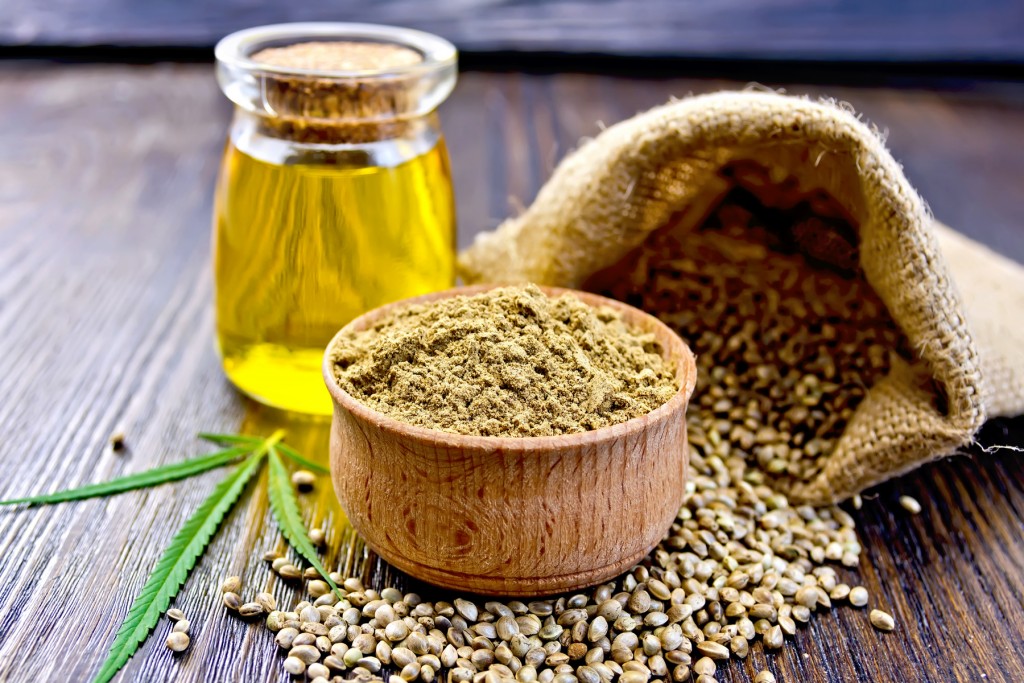
Hemp Seed Oil
Best for: Salads, smoothies, cold dishes
Hemp has an illicit rep, but no, this oil pressed from the seeds of a cannabis plant is not going to get you baked. Like flaxseed oil, it offers loads of essential fatty acids, including ALA, and has an earthy flavor. Due to its high omega-3 content, it too should be reserved for no-heat cooking. Looking for inspiration? The Crunchy Chronicles has a slew of hemp seed oil recipes. And Bustle even has a few tips for using this versatile oil for skin care.
RELATED: 13 Quick and Easy Protein Shake Recipes
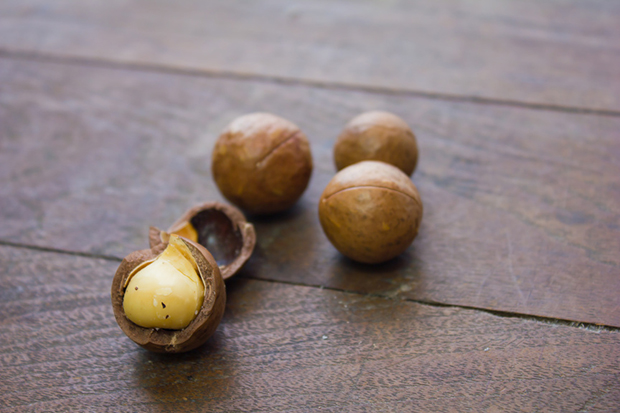
Nut Oils (Macadamia, Walnut, Hazelnut, etc.)
Best for: Salads, cold dishes, garnishing cooked dishes
Why relegate rich, hazelnut flavor to coffee and Nutella? Nut oils, like hazelnut, macadamia, walnut and others, lend their toasted flavor to whatever dish you add them to, says Hamshaw. They can be pricey, but a little bit goes a very long way. Stir nut oil into cooked grains including pasta, rice and oatmeal — or drizzle on salads, roasted veggies or fish. Like hemp seed and flaxseed oils, nut oils should be stored at a cool temperature, and aren’t ideal for cooking hot dishes since it has a relatively low smoke point (meaning it will burn quickly).
RELATED: What 200 Calories of Nuts Looks Like
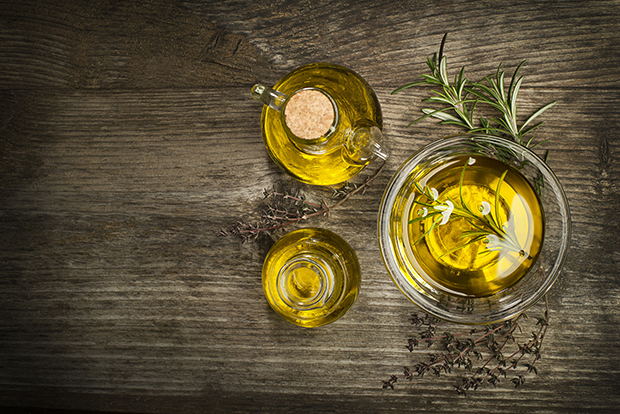
Olive Oil
Best for: All-purpose cooking, sautéing, baking, marinating, roasting
Olive oil is the real kitchen MVP. “I love olive oil for its versatility, its good lipid profile, its slightly fruity flavor, and its association with the Mediterranean diet,” says Hamshaw. (The Mediterranean diet has been linked to better heart health, healthier cholesterol levels and reduced incidence of metabolic disease and diabetes, according to numerous studies.) But which olive oil should you choose? EVOO (that’s extra virgin olive oil) is considered the most flavorful and typically the most expensive, since it comes from the very first press of a batch olives. It’s great for everything from dipping your bread to sautéing. Whereas, standard olive oil (which comes from later presses of olives) will be lower-quality, but is still a good option for cooking. And extra-light olive oil, which is light in color and flavor, works well for baking, as it’ll let other flavors shine.

Coconut Oil
Best for: Baking
There’s no denying that this trendy oil is having a moment. While it isn’t a great option for everyday cooking, it can be an excellent substitute for butter in vegan baking, thanks to its texture. But dive in with caution. Coconut oil is very high in saturated fat, says Hamshaw. “Some research has demonstrated associations between coconut oil and higher cholesterol levels,” she says. “It may not be the right choice for people who have a family history of heart disease or hyperlipidemia.” For those who aren’t at risk of heart disease, coconut oil may have some positive health benefits. For example, the type of fat found in coconut oil has been associated with improved insulin sensitivity and reduced waist size, in some studies. The moral: You can have your vegan coconut oil cake, just don’t eat too much.
RELATED: Oil Pulling: Miracle Cure or Oily Mess?
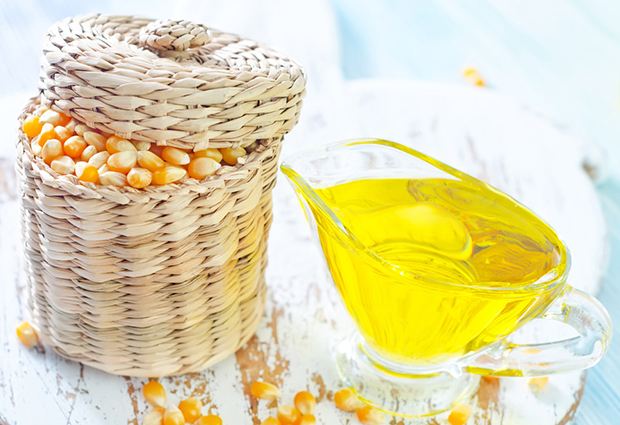
Vegetable Oils (Canola, Safflower, Grapeseed, Peanut, Corn, etc.)
Best for: Searing, high-heat roasting, frying
Some oils are heat sensitive, explains Hamshaw, meaning they can break down and go rancid if stored at warm temps or used for cooking. That’s where vegetable oils come in. “For high-heat cooking, polyunsaturated vegetable oils like canola, safflower and grapeseed are best,” she says, as they can tolerate temperatures from 400° F upwards. (According to Serious Eats’ smoke point index, safflower can handle the highest heat, topping out at 510° F.) While some research suggests vegetable oils can cause inflammation and other potential health risks, the omega-6 fatty acids found in these oils are actually essential fats and far superior to trans fats (which have been modified to stay solid at room temperature). The key is making sure you get an equal ratio of omega-3s and omega-6s, Hamshaw says. That means more salmon, walnuts and chia seeds — and yup, less deep-fried corn dogs.
